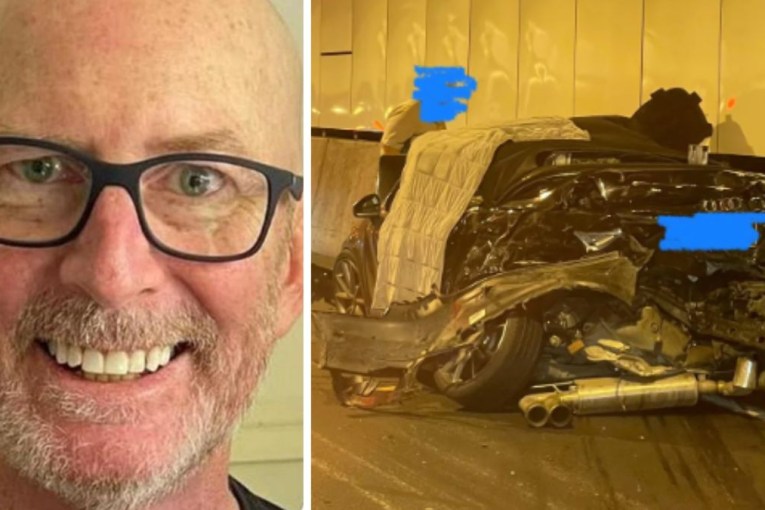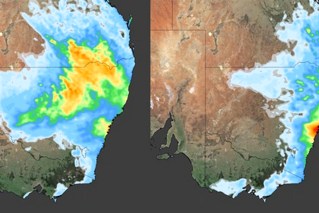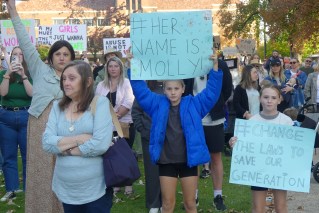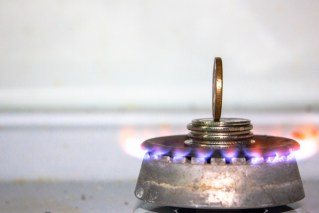The 10 biggest stories from TND‘s first year

This week marks a whole decade since The New Daily began delivering the news to Australians.
With breaking news every day, it can be difficult to remember what the biggest news stories were last month, let alone 10 years ago.
Here, we’ve put together the 10 biggest stories TND covered in its first year – from November 2013 to November 2014 – to give you an idea of what was happening when we entered Australia’s media landscape.
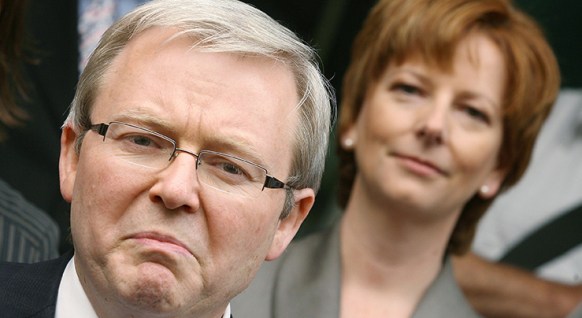
Rudd’s time as prime minister was marked by Labor’s leadership upheavals. Photo: ABC
While most of the Kevin Rudd–Julia Gillard saga took place before TND’s inception, Rudd made the decision to bow out of politics in late 2013, which happened to be the very same day the TND website went live.
The power change came more than three years after Rudd was ousted as prime minister by Gillard, and just months after he was reinstated as part of Labor’s last-ditch efforts to win the 2013 federal election – which failed.
Rudd cited keeping Australia out of recession during the 2008 global financial crisis, along with introducing a national school curriculum and the first paid parental leave scheme, as some of his biggest achievements.
But it was his formal apology to Australia’s Indigenous peoples on behalf of the country that he was most proud of.
“I hope though that what we’ve achieved through some healing of the soul will be the first step, the second of course is closing the gap to achieve a healing of broken bodies as well,” Rudd said.
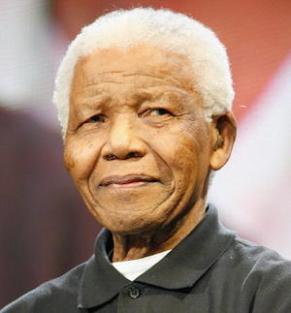
Nelson Mandela’s name has almost become synonymous with freedom-fighting. Photo: Getty
The former South African president, and the country’s most famous freedom fighter, died surrounded by family at age 95.
Mandela was an iconic figure in the anti-apartheid movement both in his home country and overseas.
After enduring 27 years imprisonment for militant opposition to South Africa’s racist regime, he went on to be elected the country’s first black president in 1994.
Towards the end of his life, Mandela had been receiving around-the-clock care from doctors after a three-month hospital stay for a lung infection earlier in the year.
Though his time as South Africa’s leader was not without cricism, Mandela remains much-respected the world over.
“He achieved more than could be expected of any man and today he has gone home,” then-US President Barack Obama said in a tribute to Mandela.
“Through his fierce dignity, Madiba transformed South Africa and moved all of us. He embodied the promise that human beings and countries can change for the better.
“As he once said, ‘I am not a saint, unless you think of a saint as a sinner who keeps on trying’.”
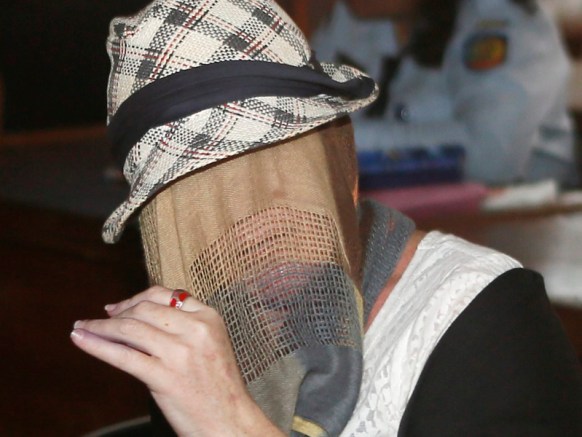
Schapelle Corby shielded herself from the world’s cameras as she left prison.
After a nine-year jail stint, the then-36-year-old walked out of Bali’s Kerobokan Prison and into a media frenzy after being granted parole.
Keeping her face covered with a scarf as she was escorted through the waiting media throng, Corby refused to answer questions, but her first words out of the prison were: “I feel like a crab”.
The former beauty school student had initially been sentenced to 20 years imprisonment after she was caught with 4.2 kilograms of cannabis in a bodyboard bag at a Bali airport in 2004.
The sentence was later cut down to 15 years.
Corby always maintained her innocence; her case and imprisonment was the focus of constant media attention in Australia, and even sparked protests at home and in Indonesia for her release.
She was unable to return to Australia until 2017 due to parole conditions, but a $2 million payout by Channel Seven for an exclusive interview following Corby’s release likely provided a very comfortable financial cushion while she waited.
In 2017, ahead of her deportation from Indonesia, reports emerged that Corby had only avoided the death penalty due to her young age at the time of conviction
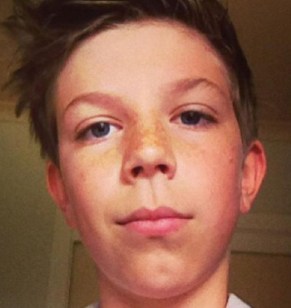
Reports of his father’s behaviour to authorities failed to save the young boy’s life. Photo: AAP
The death of 11-year-old Luke Batty at the hands of his father Greg Anderson rocked the country and shone a light on the gaps in Australia’s family violence system.
Anderson clubbed his son with a cricket bat before attacking him with a knife at Tyabb cricket ground, south-east of Melbourne.
Anderson was soon shot by police, and later died in hospital.
The child’s mother, Rosie Batty, had attempted to put an end to Anderson’s relationship with their son in 2013 after Luke revealed Anderson had pulled out a knife and begun praying while the pair sat in a car.
Despite receiving a report of Anderson’s disturbing behaviour, authorities were satisfied Luke was not in danger, and an order blocking access between father and son was lifted in July that year to allow visits at weekend football and cricket matches.
During an inquest into Luke’s murder, one of Victoria’s highest ranking police officers apologised to the boy’s mother, admitting Anderson “would not have been at the top of the file” in terms of police interest and that a traditional “one-size-fits-all approach” to family violence policing would fail the community.
Batty went on to become Australian of the Year in 2015 for her campaigning against domestic violence.
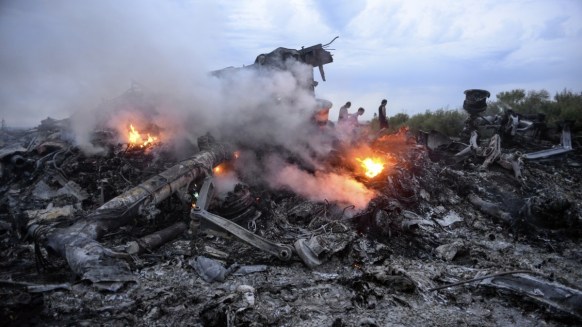
Thirty-eight Australians were among those killed when MH17 was downed by a missile. Photo: AAP
Malaysia Airlines flight MH370 disappeared while en route to Beijing from Kuala Lumpur, an event that remains one of aviation’s greatest mysteries.
The plane, a Boeing 777-200, was carrying 227 passengers – including six Australians – and 12 crew, all of whom went missing along with the aircraft.
MH370 is suspected to have gone down somewhere over the Indian Ocean, although the exact circumstances or whereabouts remain unknown.
Just over a month following its disappearance, Australia had contributed $43 million toward the international search for the missing plane and passengers, which had already seen more than four-and-a-half-million square kilometres of ocean searched to no avail.
In the years since, some debris believed to be from MH370 has washed up on the African coast and islands in the Indian Ocean.
There is still no conclusive evidence pointing to where the plane is, or what brought it down, although many suspect human interference was to blame.
Later in 2014, another Malaysia Airlines flight was involved in tragedy; on July 17, flight MH17 was shot down while flying over Ukraine as it travelled from Amsterdam to Kuala Lumpur.
The missile attack, perpertrated by two Russians and a Ukrainian separatist who remain on the run, killed all 298 people on board, including 38 Australians.
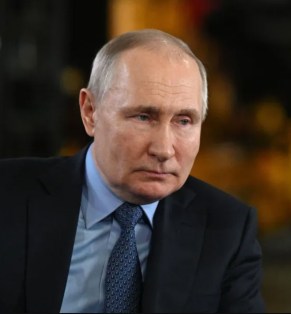
Last year was not the first time Vladimir Putin had sunk his teeth into Ukraine. Photo: Getty
Months before the shooting down of MH17, Russian President Vladimir Putin announced the annexation of Crimea, which until that point had been officially part of Ukraine.
Amid political turmoil in Ukraine, Crimea’s pro-Russian parliament had voted to have the region join Russia earlier in the month, and an ensuing referendum had seen the majority of Crimeans vote in favour of the move.
However, many world leaders were quick to condemn the annexation.
Crimean and Russian officials insisted the referendum was entirely above board, but accredited journalists were prevented from entering some polling stations and the region’s indigenous Muslim Tatar community – a population who had previously been deported by former Soviet leader Joseph Stalin – largely boycotted the event.
EU sanctions were subsequently placed on Russia, but the latter still holds Crimea today, and the annexation is regarded by some as being one of the first steps towards the Ukraine invasion that officially began in 2022.
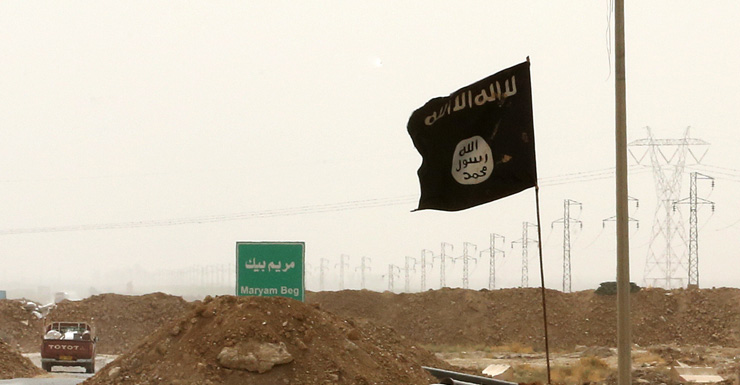
ISIS and its supporters claimed responsibility for numerous terror attacks. Photo: AAP
The Islamic State in Iraq and Syria (ISIS, also known as ISIL), a jihadi militant group formed in 2013, had been mounting attacks in Syria and Iraq for years with the goal of setting up a new radical Sunni Muslim state ruled by sharia law.
This came after the invasions of Afghanistan and Iraq by the Soviet Union and the US, respectively, provided fertile ground for extremist groups to grow in power – leading to the rise of ISIS’ predecessor of sorts, Al-Qaeda.
But even Al-Qaeda felt ISIS was too violent.
After ISIS announced a caliphate stretching from Syria’s Aleppo to Iraq’s Diyala in June 2014, a US-led coalition began airstrikes against the group in Iraq in August, and expanded the campaign to Syria the next month.
Over the following months and years, ISIS and its supporters carried out numerous deadly international terror attacks in countries such as Belgium, Turkey, France and the US.
Australia was not immune, with an ISIS-sympathiser stabbing counterterrorism police in Melbourne in September 2014, and another suspected sympathiser taking hostages at Sydney’s Martin Place Lindt Café in December, resulting in two deaths.
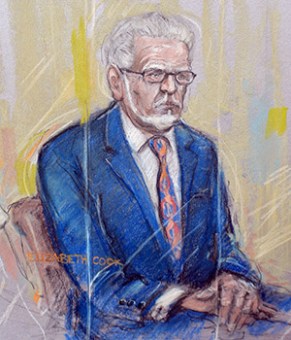
Rolf Harris on trial in London. Photo: File
News that one of Britain and Australia’s most celebrated TV entertainers, artists and musicians had been arrested and charged with sexual abuse allegations in April 2013 sent shockwaves through both countries.
In June 2014, a jury found the Tie Me Kangaroo Down, Sport singer guilty of assaulting multiple underage girls in Britain between 1968 and 1986.
His victims included – but were not limited to – a childhood friend of his daughter and a seven or eight-year-old girl who had wanted to get his autograph at a community centre.
More women gave supporting evidence that Harris abused them in Australia, New Zealand and Malta between 1969 and 1991, but he wasn’t charged over those alleged incidents because they occurred outside the UK.
Years later, serving his prison sentence following the verdict, Harris was charged with a further seven alleged assaults said to have taken place over four decades.
He was eventually found not guilty on all charges, and released on bail in May 2017 after serving time on his previous convictions.
In March 2023, the convicted paedophile was sued over the alleged 1982 sexual assault of a then-10-year-old in Australia, but he died shortly after at age 93 of neck cancer in May.

Germany shocked host country Brazil in the 2014 FIFA World Cup. Photo: Twitter/@JantyCf
The 2014 FIFA World Cup was bruising for Australia, with the Socceroos failing to win a single game in the group stage and plunging 14 spots to 76 in world rankings.
But it was a stellar event for Germany, who managed to beat Brazil 7-1 on their home turf.
It was a monumental loss for the Brazilians, who had hoped to win the World Cup on home soil.
The soccer-mad nation treats the sport like a religion, and to lose so heavily devastated fans, with the images of players and supporters inconsolable after the game some of the most dramatic in the history of the sport.
This marked Brazil’s first competitive home defeat in 39 years, and was a moment of vindication for Germany, which had spent years overhauling its soccer system in the aftermath of a loss to Brazil in the 2002 World Cup final.
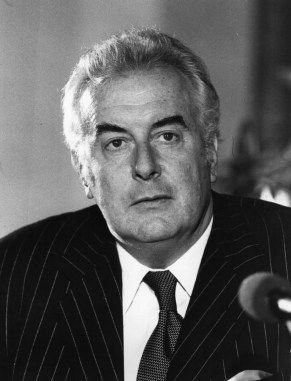
Gough Whitlam may have been ousted as prime minister, but he remains one of Australia’s respected politicians. Photo: Getty
Whitlam, an iconic figure in Australian politics, passed away at age 98.
He had served as the country’s 21st prime minister from 1972 to 1975, and spent his tenure introducing sweeping reforms that still have meaningful impacts on Australians’ lives today.
These included the creation of Medicare (then known as Medibank) in 1975, a move which was met with resistance from those in the medical profession, and faced a tough path through the senate.
Some of the Whitlam government’s other achievements included:
- Scrapping tuition fees at universities and technical colleges
- Establishing diplomatic relations with China, who has since become Australia’s largest trading partner
- Abolishing the death penalty
- Outlawing discrimination against Aboriginal and Torres Strait Islander peoples
- Ending conscription and releasing draft resisters from prison.
Despite his government’s prolific achievements, Whitlam became the first and only Australian prime minister to be dismissed by the Governor-General on November 11, 1975.
The dramatic measure resulted from a deadlock which saw the Opposition refuse to allow passage of government spending bills unless Whitlam agreed to call a general election – this meant the Commonwealth would have eventually run out of money to pay for essentials including pensions, services, and public servants.
After leaving politics, Whitlam worked as Australia’s ambassador to UNESCO, wrote several books, was made chairman of the National Gallery of Australia Council and was part of the bid team which netted Sydney the 2000 Olympics.











